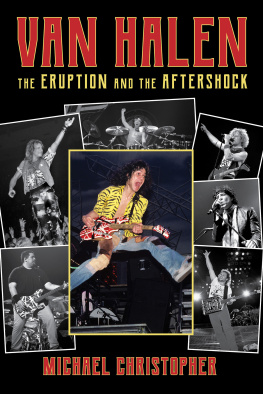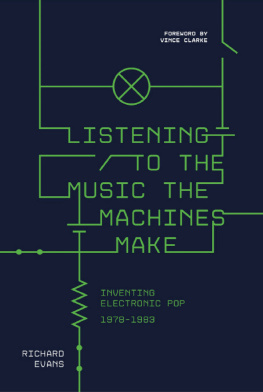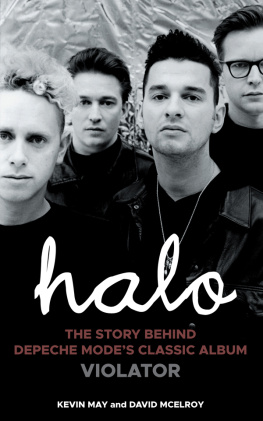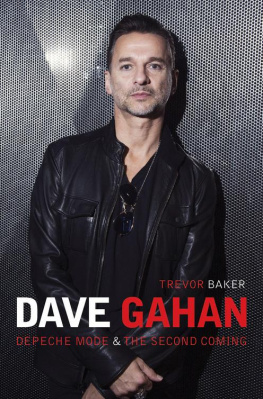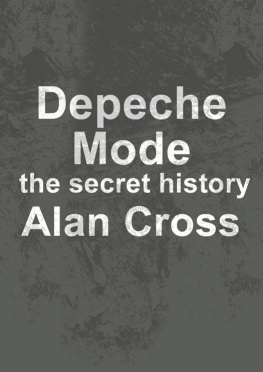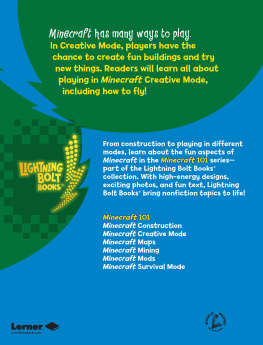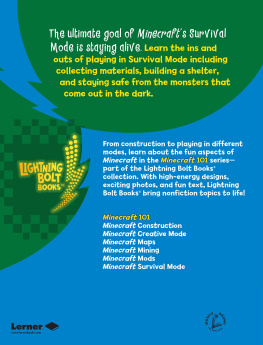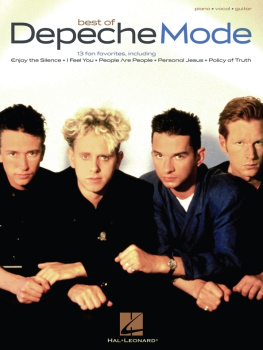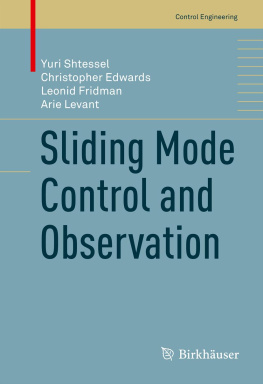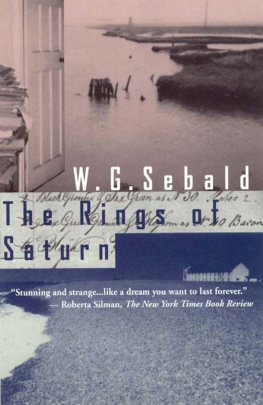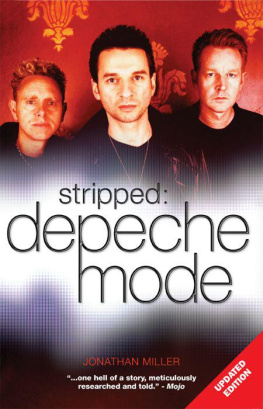Michael Christopher - Depeche Mode FAQ
Here you can read online Michael Christopher - Depeche Mode FAQ full text of the book (entire story) in english for free. Download pdf and epub, get meaning, cover and reviews about this ebook. year: 2020, publisher: Backbeat, genre: Non-fiction. Description of the work, (preface) as well as reviews are available. Best literature library LitArk.com created for fans of good reading and offers a wide selection of genres:
Romance novel
Science fiction
Adventure
Detective
Science
History
Home and family
Prose
Art
Politics
Computer
Non-fiction
Religion
Business
Children
Humor
Choose a favorite category and find really read worthwhile books. Enjoy immersion in the world of imagination, feel the emotions of the characters or learn something new for yourself, make an fascinating discovery.

- Book:Depeche Mode FAQ
- Author:
- Publisher:Backbeat
- Genre:
- Year:2020
- Rating:3 / 5
- Favourites:Add to favourites
- Your mark:
- 60
- 1
- 2
- 3
- 4
- 5
Depeche Mode FAQ: summary, description and annotation
We offer to read an annotation, description, summary or preface (depends on what the author of the book "Depeche Mode FAQ" wrote himself). If you haven't found the necessary information about the book — write in the comments, we will try to find it.
Depeche Mode FAQ — read online for free the complete book (whole text) full work
Below is the text of the book, divided by pages. System saving the place of the last page read, allows you to conveniently read the book "Depeche Mode FAQ" online for free, without having to search again every time where you left off. Put a bookmark, and you can go to the page where you finished reading at any time.
Font size:
Interval:
Bookmark:

Backbeat Books
An imprint of The Rowman & Littlefield Publishing Group, Inc.
4501 Forbes Blvd., Ste. 200
Lanham, MD 20706
www.rowman.com
Distributed by NATIONAL BOOK NETWORK
Copyright 2021 by Michael Christopher
All rights reserved. No part of this book may be reproduced in any form or by any electronic or mechanical means, including information storage and retrieval systems, without written permission from the publisher, except by a reviewer who may quote passages in a review.
Special thanks to Adrian Sherwood, Beverly Glick, Brian Griffin, Colin Lee, Danny Tenaglia, Darren Powell, Dave Clarke, Donovan Reading, Holly Mobley, Karri Rose, Marc Nguyen Tan (Colder), Morten Vadsholt, Owen Rice, Paula Krulicki, Sandra Smiley, Sergio Elia, Steven Halsall, Timo Mass, and Yann Le Tolguenec, who contributed interviews.
The FAQ series was conceived by Robert Rodriguez and developed with Stuart Shea.
Book design by Snow Creative Services
British Library Cataloguing in Publication Information available
Library of Congress Control Number: 2020948246
ISBN 978-1-61713-729-7 (paperback)
ISBN 978-1-4930-5400-8 (e-book)
 The paper used in this publication meets the minimum requirements of American National Standard for Information SciencesPermanence of Paper for Printed Library Materials, ANSI/NISO Z39.48-1992
The paper used in this publication meets the minimum requirements of American National Standard for Information SciencesPermanence of Paper for Printed Library Materials, ANSI/NISO Z39.48-1992
E lectronic music is still so young, relatively speaking, that if youre over a certain age, you probably didnt grow up with it. Even todays kids who are devotees probably arrived there from somewhere else. In my case, there was plenty of music at home, but my mother and father listened exclusively to baroque classical music. My older sister Hilary and I discovered rock and roll and disco through 1970s New York radio.
When I was twelve, my family moved to Paris for a year, and Hilary and I started searching around the radio dial almost as soon as we landed. We came upon Radio Luxembourg and suddenly found ourselves in a world of new wave. Gary Numans icy-cool debut single Cars was at the top of the charts. Id wait eagerly for it to come on again, and every time I heard it the world felt MODERN. One day at my new school I saw a kid carrying a copy of Jean-Mi-chel Jarres quinoxe album and I went out and bought my own. I was instantly obsessed with the synth-pop primer quinoxe Part 5, warmer than Gary Numan, almost sensual.
I soon picked up the guitar and became an insatiable student of rock history, but the sound of a synthesizer was never far away. When my sister brought home Depeche Modes first 45, New Life, it felt both instantly familiar and brand new. It combined the chill and the warmth of my two favorite synth songs, adding amped-up energy and even more pop immediacy.
Back in New York, I dove deeper into both their old and new music. A cassette of Construction Time Again spent a few months firmly lodged in my Sony Walkman as I made my way around the city. The chorus of Everything Counts continues to move me the same way it did then.
Years later, while on tour with Nada Surf, we played a club called Matrix in the German city of Bochum, and the promoters at the club told us they were hosting an Empire of Darkness Goth party starting at midnight after our show. Many clubs we played turned into discos after hours, so this wasnt unusual. They explained, however, that Bochum had a huge goth contingent and that it was Good Friday (also known as Black Friday) and it was the biggest night of the year in the subculture. We were excited to check out the scene.
Sure enough, after our show the club was filled with people dressed to the nines. Incredible fashion, total commitment, latex and leather everywhere, lots of makeup, wall-to-wall black clothes. I was totally fascinated, drifting from room to room, watching, sometimes joining in the dancing a little, but mostly being a fly on the wall, soaking up the atmosphere, having a few drinks. The lights were very low, and the music was loud.
I had been hanging out for about an hour when Personal Jesus came on the stereo at wall-shaking volume. Tribal drums, that classic blues guitar riff, depth charges of bass synthesizer and Dave Gahans unmistakable voice. I will never forget the moment. You could feel the energy in the air double. Peoples dancing became more intense and focused.
This was an anthem.
The night suddenly had its sound. Identity, freedom, sexual tension, purpose, danger, safety, a mix of everything. Something told me this was the one band that everyone there could agree on. It was a really powerful moment, and it remained etched in my mind. They still seem to me to be the Rolling Stones of electronic music, bringing more heat than anyone, deepening a visceral connection with people from all walks of life, decade after decade.
Driving to the airport in Los Angeles several years later, Enjoy the Silence came on the radio. We were in the middle of planning a Nada Surf covers album and I couldnt help but put every song I heard through a should we cover this? internal feelings questionnaire. To my surprise, the answer was clear: we had to record this one. The song was so well-written that I knew it would withstand any treatment. Part of the joy of covering someone elses work is pretending that you wrote it, getting on a thrill ride through a landscape that youd loved, that youd only heard through speakers, that you now inhabit. I changed the opening melody just a little and then let myself be led by the song. It ended up being the highlight of the album.
Like all the greatest bands, Depeche Mode are full of contradictions. Despite being hardworking artists and technicians, pioneers of sampling who weave their soundscapes from small and sometimes complex elements, their rhythms still ultimately come across as primal primitive and direct. And despite being born out of a musical culture that at first prized coldness and detachment, they champion feelings and emotional states, from love and lust and hedonism and freedom, to self-reflection and redemption. They have one foot in our primordial past, and one foot in the future, which is maybe the constant condition of modern humanity. Depeche Mode is just human music in the end.
Matthew Caws
Cambridge, England
August 2020
R ecovering from the night before over a cup of tea in Reykjavk while covering the annual music festival, Iceland Airwaves, I found out via e-mail that Id be doing Depeche Mode FAQ. Turning to my equally hungover mate, Rich, I said calmly, Im going to be writing a book about Depeche Mode, to which he replied with raised eyebrows and a typically English mannerism as he lifted his cup, Cheers. It was the last time there would be any sense of serenity in the process, which was quickly followed by a whirlwind of excitement, ups and downs, and frustration and triumph unlike anything Ive ever experienced.
Synth-pop in general, but particularly the bands who started it off, is somewhat of an untapped era of music in terms of in-depth coverage, as its always been a bit of a black sheep genre. Ive never wavered in my belief that the best of all the bands who have been tagged as part of the movement is Depeche Mode. The most important thanks therefore have to go to Martin Gore, Dave Gahan, Andy Fletcher, Vince Clarke, and Alan Wilder for inspiration and such a vast catalog that has been the soundtrack to my life at various points and one I had the immense pleasure of diving into even deeper than usual.
Next pageFont size:
Interval:
Bookmark:
Similar books «Depeche Mode FAQ»
Look at similar books to Depeche Mode FAQ. We have selected literature similar in name and meaning in the hope of providing readers with more options to find new, interesting, not yet read works.
Discussion, reviews of the book Depeche Mode FAQ and just readers' own opinions. Leave your comments, write what you think about the work, its meaning or the main characters. Specify what exactly you liked and what you didn't like, and why you think so.

